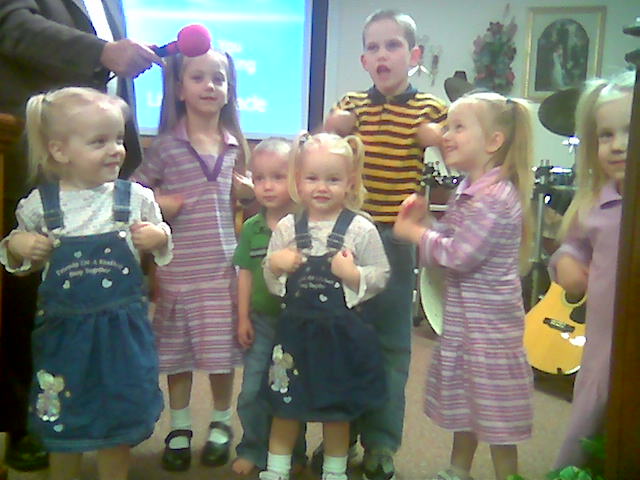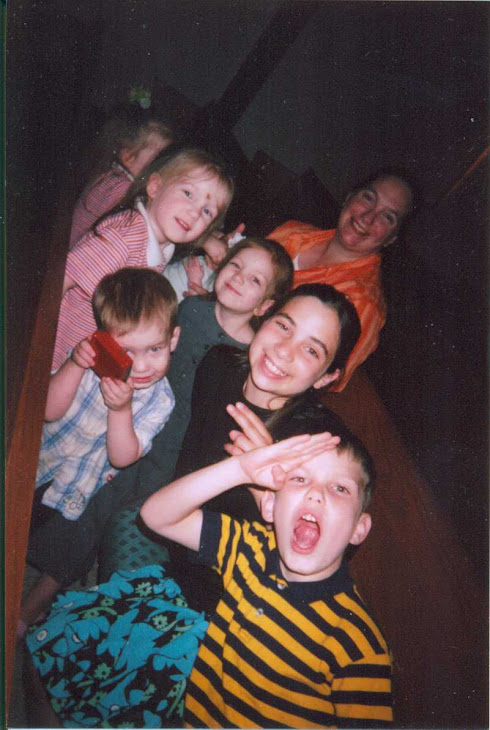- They come to the "table" rain or shine, hot or cold. When they're hungry, they come and eat; no pride, no pickiness, no pushiness. They're not bashful or reluctant. They require no coaxing.
- They're patient. If others are there before them, they just wait until there's a place for them. Juncos and chickadees will hang around while a fiesty blue jay eats his fill.
- They don't get bothered by intruders like ubiquitous, overbearing, pesky squirrels and the occasional rabbit. If the squirrels dump the seeds out of the feeder, no problem. They'll flutter down to the ground and feed there. They even willingly eat there right along side the rabbits!
- One day, eleven doves came at one time. (They're too big to eat from a feeder so they eat what falls to the ground.) They congregated, sitting in nearby branches for a while before settling down to the ground to feed. One reason for this is hawks. When a hawk is spotted, (or at any sudden noise, for that matter,) the whole flock rises at once - but they scatter in all directions as they rise, thus decreasing the hawk's advantage in eyesight and speed.
- A pair of cardinals, who nest nearby, are sharers. They bring food back to the nest, first to feed each other as they sit on the eggs, and then to feed the hatchlings. Others carry food away too, but I've observed the cardinals doing it most often.
- Different kinds of food attract particular birds. For instance, the woodpeckers prefer suet. Blue jays love cracked corn and pluck the kernels off dried corn cobs. Finches and cardinals like thistle and sunflower seeds. Squirrels do too and will spill mixed seeds all over the place as they pick out the sunflower seeds. Happily, many birds are glad to eat whatever is set before them.
- All kinds of smaller birds come. There's no prejudice or selectiveness as to who eats with whom. Cardinals, sparrows, chickadees, juncos, jays, red-winged blackbirds, doves, woodpeckers, even cowbirds feed together in harmony. If they're seed and/or suet eaters, they come.The fact that someone has provided for them becomes a common denominator, one that everyone can enjoy.
- They seem to spread the word. New (to me) visitors come frequently. Once they've been, they return and bring others; mates, babies, and bird-friends.
- An additional bonus comes with those who sing - before and/or after they eat. Their own brand of joyful thanksgiving adds a sweet dimension to any day.
"Are not two sparrows sold for a farthing? and one of them shall not fall on the ground without your Father." (Matthew 10:29) If God sees the sparrow's fall (death) and set nature in order to provide for its sustenance, how can we think we could ever be out of His sight and care?
mjk




















No comments:
Post a Comment